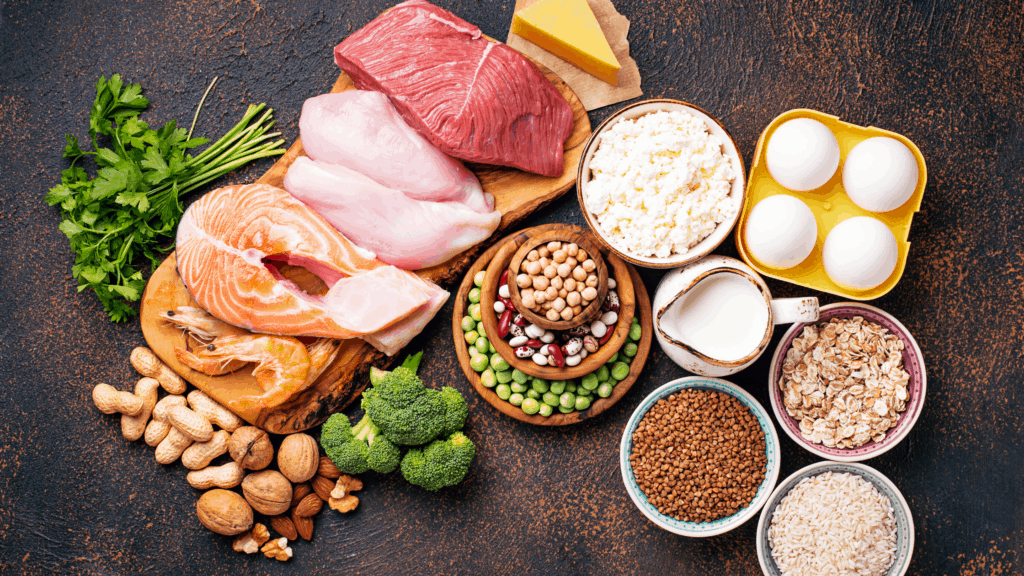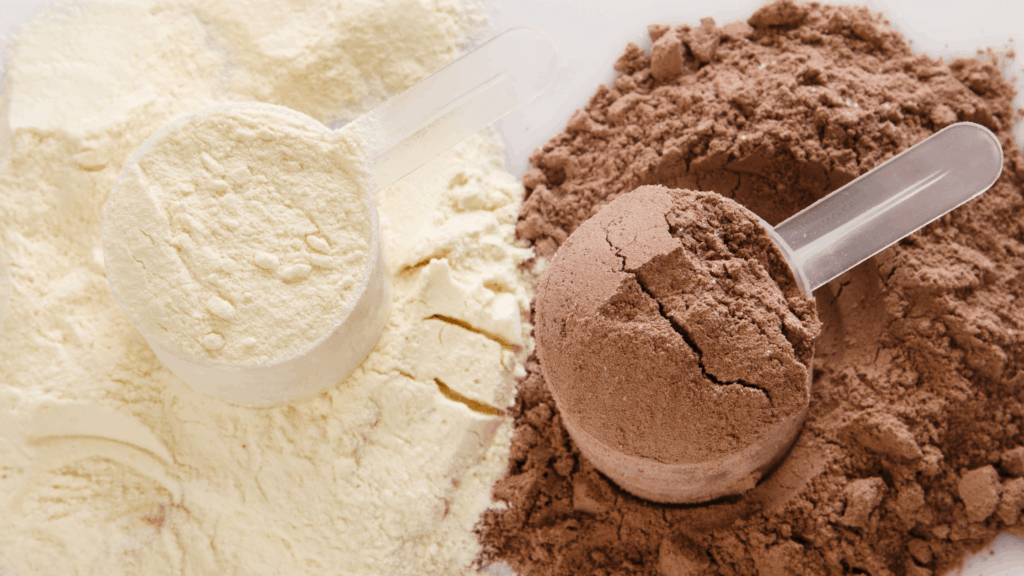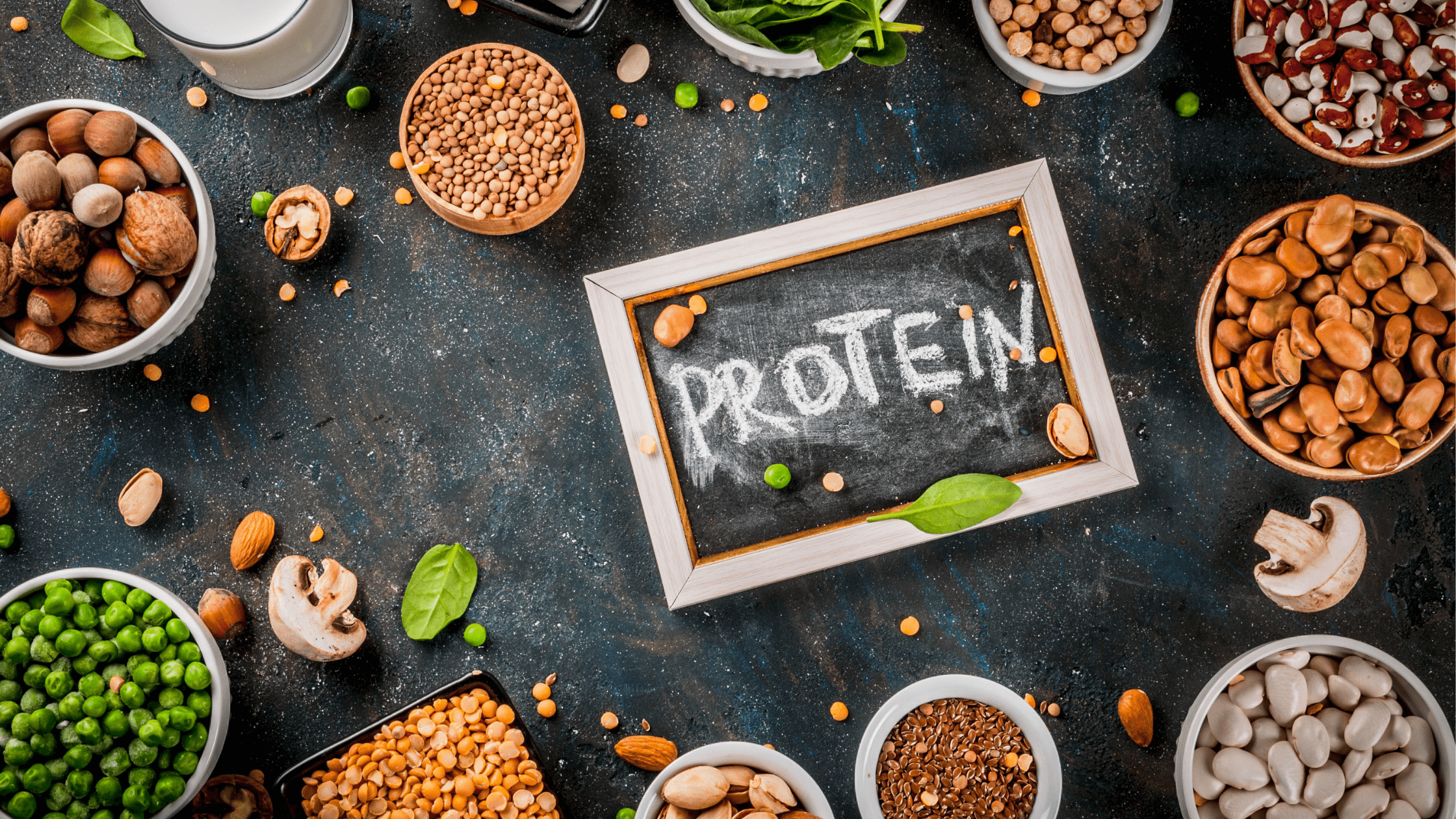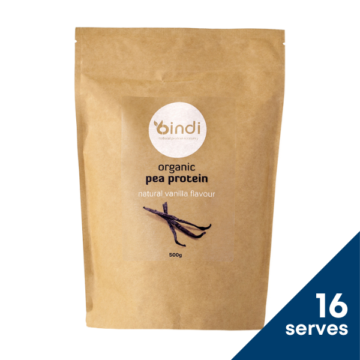One of the most common questions we are asked is ‘what is the best type of protein’? Protein is available in a number of food sources and you will find a huge variety of protein supplements to choose from on the market. This week we delve into some of the science so you can understand which is the the right one for you, depending on your needs.
Amino acids: the natural ‘building blocks’ of protein
Proteins are made up of amino acids joined together by bonds called peptide bonds. A variety of amino acids are needed to assemble a single protein.
When you consume protein in your diet your body will break it down into its constituent amino acids, which get absorbed through your intestine. Genetic coding instructions then reassemble the amino acids back into proteins that support your bodily functions (e.g., muscle protein to help you build muscle).
Essential and non-essential amino acids: There are 20 amino acids in your body’s proteins. They are classified as essential or non-essential. Non-essential amino acids are made in your body itself. Essential amino acids must come from your diet on a regular basis because your body is not able to produce these amino acids. The essential amino acids include: Histidine; Isoleucine; Leucine; Lysine; Methionine; Phenylalanine; Threonine; Tryptophan; Valine.
Branched chain amino acids: Amino acids called branched chain amino acids (BCAA) play a critical role in your muscle recovery and lean muscle synthesis. The BCAAs are leucine, isoleucine and valine. Leucine, in particular, is now widely regarded as the primary BCAA responsible for stimulating muscle synthesis, especially helpful during your recovery phase following exercise.
COMPLETE VS INCOMPLETE protein
Complete proteins are protein with high biological value because they contain all of the essential amino acids in sufficient amounts. Animal protein sources (meat, milk, eggs) are regarded as complete proteins.
Incomplete proteins are proteins with lower biological value because they lack one or more of the essential amino acids. The essential amino acid in short supply is referred to as the ‘limiting amino acid’ as a deficiency over time can significantly impact your body’s ability to assemble complete proteins. Vegetable and plant protein sources are regarded as incomplete proteins.
It is therefore recommended that you mix your intake of proteins to correct deficiencies that may occur in any one source.
What are the benefits of the different protein foods we eat?
- While meat protein is complete and contains all the essential amino acids, it is not particularly rich in nutrients and typically provides a high calorie load which means you may end up eating less high carbohydrate foods needed for glycogen stores.
- Fish protein is a good source of high quality protein with virtually no carbohydrates and little saturated fat. Although, take care … farm-raised fish (and meat) are likely to have unwanted additives, including antibiotics, pesticides and/or hormones.
- Milk-based proteins are a rich source of protein and have the benefit of meeting your increased requirements for calcium. However, dairy products are one of the world’s leading causes of food allergies, so be careful if you experience symptoms of diarrhoea, constipation and fatigue.
- Whole eggs (not simply the egg white) are famously rich in protein but also a big cause of food allergies. Beware! Their high sulphur content can cause ‘intestinal gas’ (a rather undesirable side effect!).
- Whey and soy proteins have become popular sources of protein. Whey is high in BCAA leucine and is absorbed very quickly. However, whey tends to contain more cholesterol than is recommended and many people develop significant allergies to both whey and soy.
- Vegetable and Plant-proteins are incomplete proteins so it is advisable to eat these protein sources in combination to compensate for amino acid deficiencies. For example, you might combine cereal foods (limited in lysine but rich in methionine) with legumes such as peas, beans, peanuts and alfalfa (limiting in methionine but rich in lysine).

a look at Pea ProteiN
Pea Protein is is fast assuming popularity as a protein source for athletes. Our own Bindi Organic Pea Protein has taken off like crazy – why is that?
- Pea protein contains a lot of the BCAAs important for decreasing muscle breakdown after workouts.
- It has a positive effect on muscle growth, increasing muscle thickness just as potently as dairy-based proteins.
- It is gluten and dairy free, therefore more gentle on your gut than some of the other proteins.
- It contains a great number of peptides that delay the emptying of your stomach to help you feel full for longer and support weight loss.
- Research suggests that pea protein may help to lower blood pressure (according to a 2009 Canadian study).
Research shows that intake over time of plant-based proteins, rather than animal-based proteins, decreases the risk of coronary artery disease.
What are the benefits of protein supplements?
Ideally, you want to get your training nutrition from natural food sources. However, protein supplements can fit into a well-balanced nutrition program for athletes.
- Supplements are handy as portable and convenient snacks while you are on the go and not able to prepare your own food; and
- The snack-size serves can also provide a good dose of protein and nutrients when your appetite is decreased after a long and hard training session (not uncommon in athletes).

How do I balance these types of proteins?
Although proteins are typically classified according to their food sources (as dairy proteins, meat proteins, vegan protein, etc.), there is no single type of protein in a natural food source.
Amino acids are the important building blocks of protein, and at least nine amino acids must be adequately sourced from your diet to meet your body’s needs, especially when you are increasing your exercise activities in training and/or competition.
“A protein intake to meet your training requirements will require not simply one source of food type or protein supplement, but on a protein combination that works best for you”
A SUMMARY on using protein
✅ To optimise your recovery and sports performance, you need to know you can readily absorb and digest protein
✅ Experiment with protein foods and supplements during training, so you know what will work for you around competition times too
✅ Protein should be consumed throughout the day rather than in one big meal
✅ Incorporate various sources of protein, particularly in foods, to ensure you will get all the amino acids you require
✅ Protein supplements or powders are a convenient source of protein to add to a healthy diet
✅ When choosing a protein powder, look for one that has as few ingredients as possible. And always check the labels carefully and look out for any additives including sodium, sugars and artificial supplements.
Our Bindi Pea Protein contains just three ingredients; Golden Organic Pea Protein, Natural Vanilla Flavour, and a Natural Plant-Based sweetener called Thaumatin (this is like Stevia, but without the metallic aftertaste)

READY TO TRY PROTEIN?
Our Bindi Pea Protein in Chocolate of Vanilla flavour is famously smooth and creamy; easy to mix without any ‘gritty’ bits. You can mix with water of milk, or blend in a smoothie. Not sure about a whole bag yet? Why not try a Protein Sample Pack.


References
- Axe Dr, Pea Protein: The Non-Dairy Muscle Builder (that Also Boosts Heart Health). Accessed February 2017 at: https://draxe.com/pea-protein/
- Burke L (1992). Protein and amino acid needs of the athlete. National Sports Research Centre, No. 28. Accessed February 2017 at: http://ow.ly/cF4o3092UKj
- Kelemen LE et al (2005). Associations of Dietary Protein with Disease and Mortality in a Prospective Study of Postmenopausal Women. American Journal of Epidemiology, 161 (3): 239-249. Accessed February 2017 at: http://ow.ly/bzCF309qgoP
- Paddock C (2009). Pea Protein Fights Blood Pressure and Kidney Disease. Medical News Today. Accessed February 2017 at: http://www.medicalnewstoday.com/articles/143262.php
- Thomas T (2016). The endurance athlete’s guide to protein. Training Peaks. Accessed February 2017 at: http://ow.ly/AdpA3092UOj
- University of Michigan. Pea Protein. Michigan Medicine. Accessed February 2017 at: http://www.uofmhealth.org/health-library/hn-10013795

